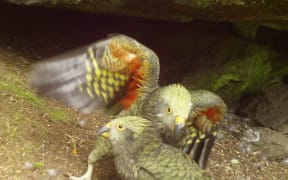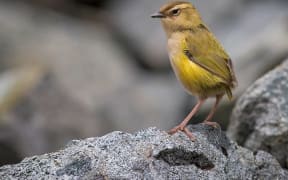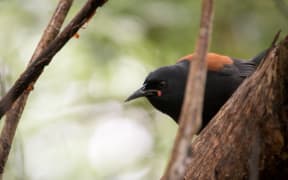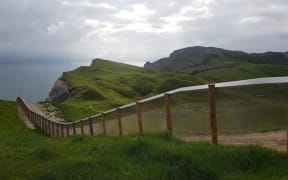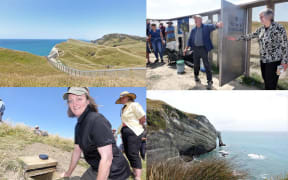A group of young seabirds are settling into their new home at Cape Farewell, at the northernmost tip of the South Island.
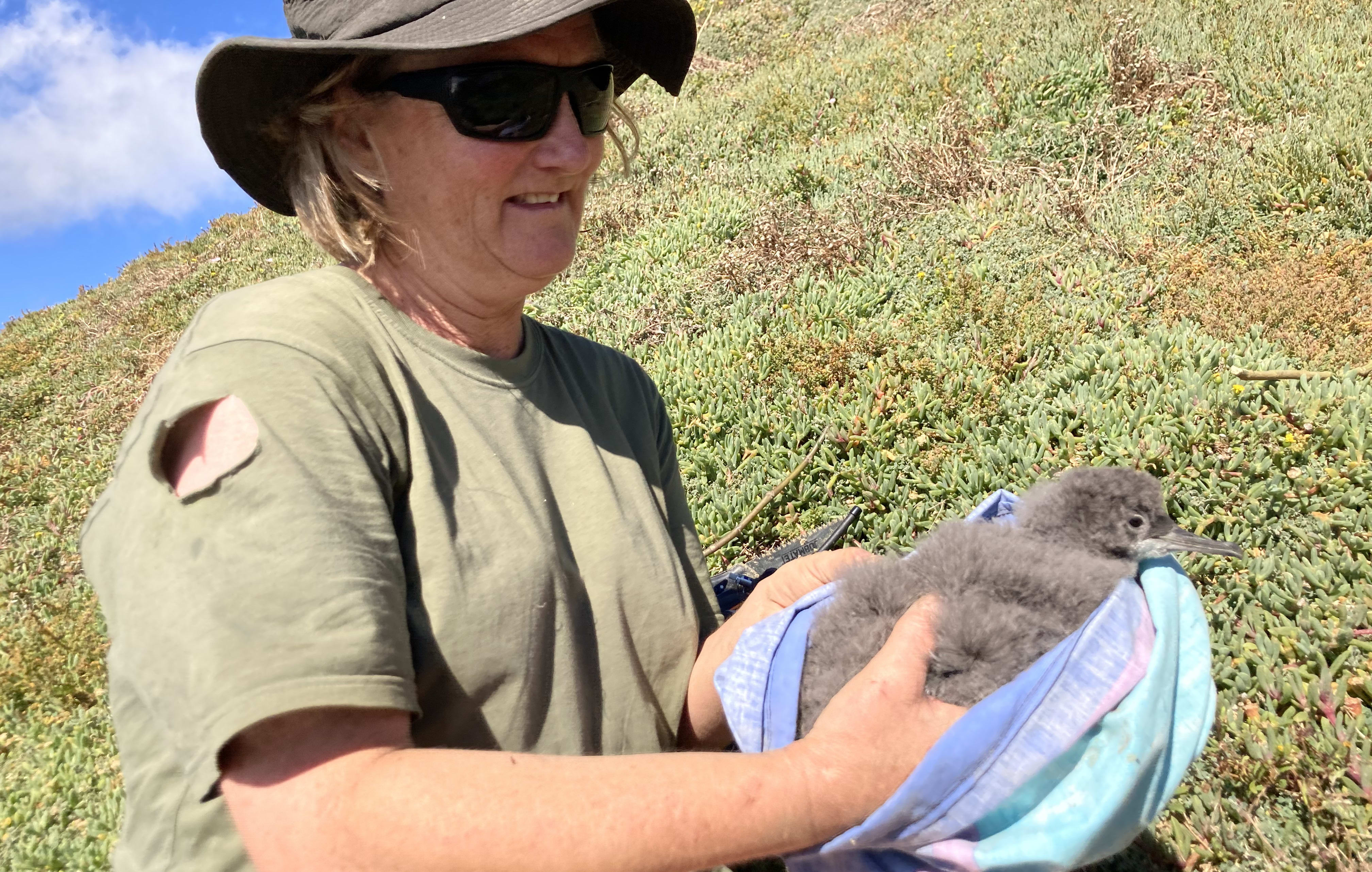
Fifty pakahā fluttering shearwater chicks were released at the Wharariki Ecosanctuary at Cape Farewell. Photo: Supplied
Fifty fluttering shearwater, or pakahā chicks were recently translocated from Long Island in the Marlborough Sounds to the Wharariki Ecosanctuary in Golden Bay.
Percy, Banana, Hedge and Puff to name but a few are being hand fed sardine and pilchard smoothies every day by a team of dedicated volunteers.
They are the first species to be introduced to the fenced sanctuary, an initiative led by HealthPost Nature Trust in partnership with the Department of Conservation and Manawhenua ki Mōhua.
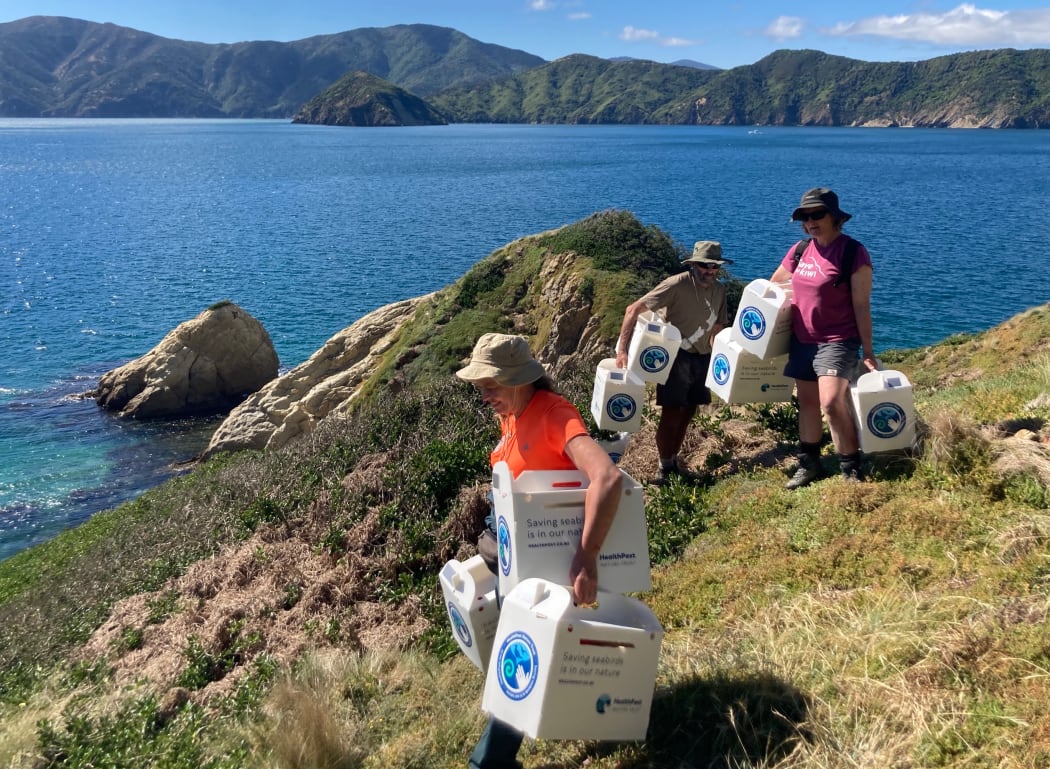
Fluttering Shearwater chicks, pakahā, being carried to the release site on Cape Farewell. Photo: Supplied
HealthPost Nature Trust chairman Peter Butler said it was emotional when the birds arrived at the sanctuary last weekend, after their journey from Long Island, in Queen Charlotte Sound.
The fifty chicks were chosen based on their age and transported by boat to Picton, then flown to Takaka and driven up to Cape Farewell.
Project co-ordinator Marian Milne said burrows were built for the birds, which they are kept in until they settle in.
A week in, the chicks were doing well with around 10 of the biggest birds able to leave their burrows and stretch their wings in preparation for flight.
Once they fledged, the birds would spend several years at sea before coming home to breed.
"Our big hope is that they'll come back and maybe bring a friend or two. But that will not happen until they're three, four or five years old, perhaps even six years old, so you have to play the long game with this."
The trust hopes to reintroduce up to 250 pakahā chicks to the sanctuary.
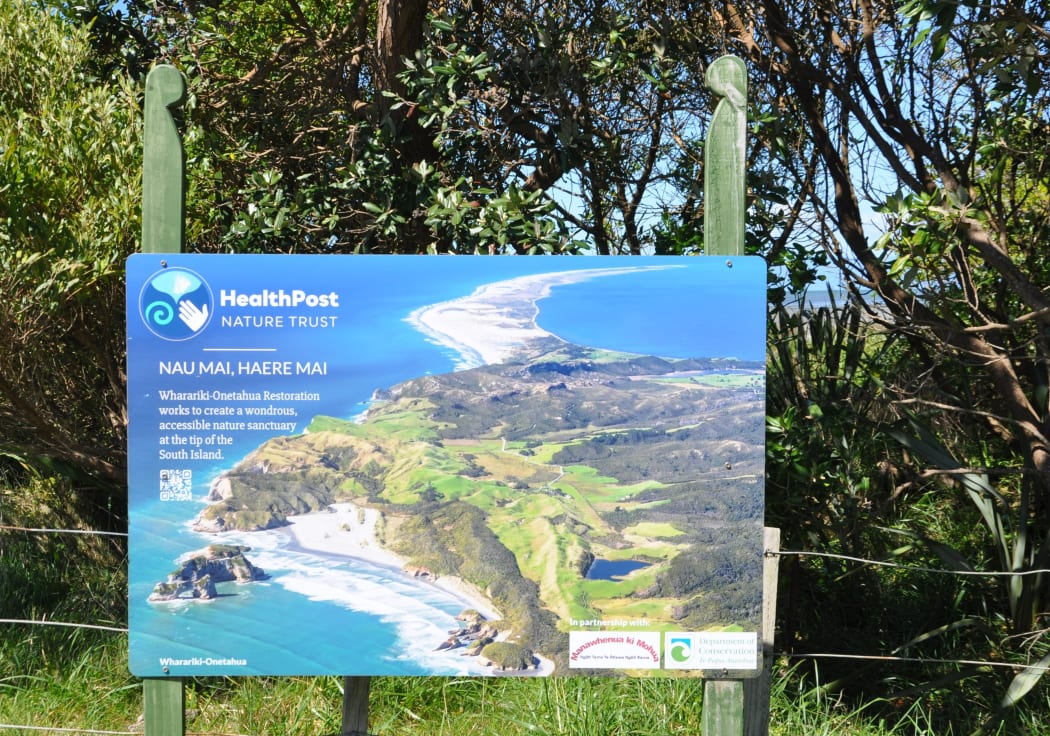
Photo: RNZ / Samantha Gee
Fluttering shearwater once bred on the mainland, but their breeding colonies are now mostly found on offshore islands
A large colony of fluttering shearwater that once lived on Nguroa Island, south of the sanctuary, had been wiped out and Butler said it was satisfying to be able to re-introduce the birds to the area.
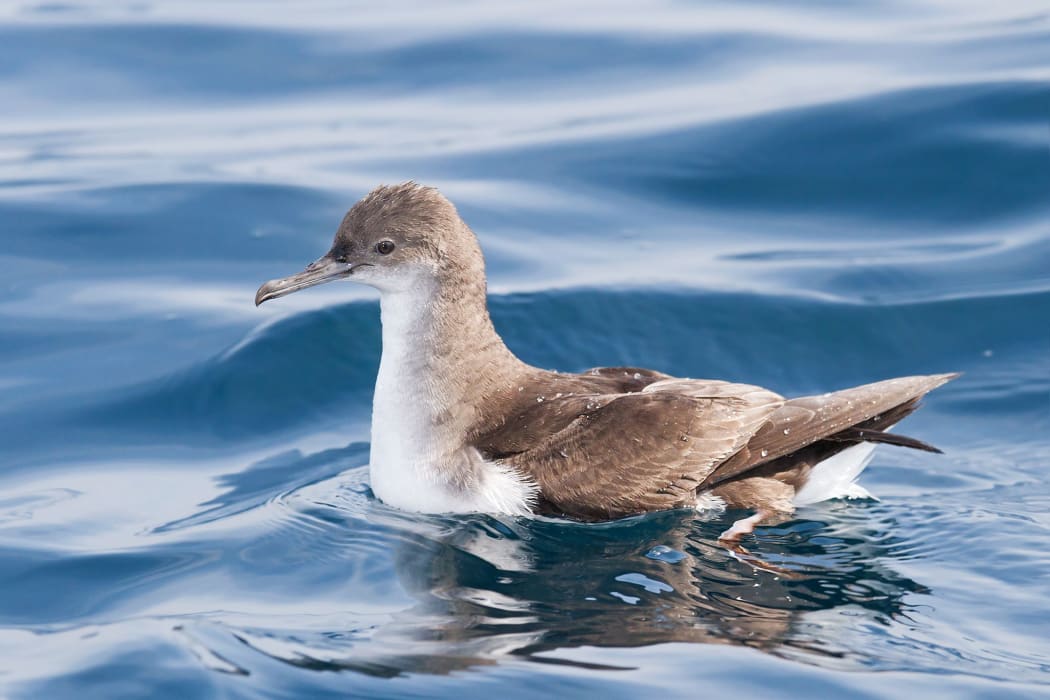
Once grown, it's hoped the pakahā fluttering shearwater will come back to the sanctuary to nest. (File photo). Photo: Wikimedia Commons
The Wharariki Ecosanctuary was spearheaded by Collingwood-based health and wellness retailer HealthPost.
Butler said the company had been donating to charities around New Zealand for some time but wanted something locally-focused that its staff could identify with.
"As a company, we believe that the health of the environment and the community is integral to wellbeing, that it's not just what supplements you take.
A 200m predator proof fence was erected at Cape Farewell, creating a three hectare sanctuary on a peninsula in 2019.
There are trapping lines inside and outside the sanctuary and a second internal predator proof fence was built to further protect the fluttering shearwater, which nest in burrows and are particularly vulnerable to predators.
"It's just the start of what we hope will be building a classic coastal ecosystem, as would have existed pre-human."
Butler said the team hoped to build its seabird expertise in order to re-introduce more species to the area, including some that were endangered.
"What's sort of unique is getting them back onto the mainland, and we hope with our trapping regime, that they'll be able to spread from the protected ecosystem to the surrounding areas, the cliff tops that go all the way out to Farewell Spit."

